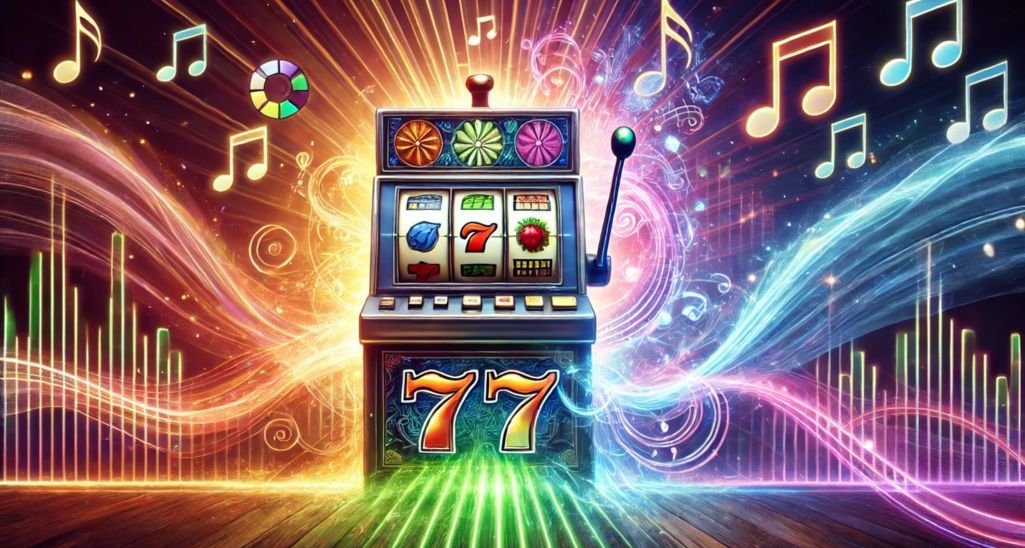When you load up a casino game or slot machine online, one of the first things you notice (and remember) is the catchy melodies and soundscapes.
These upbeat melodies and cheerful jingles are crafted to deliver immersive experiences to players, and make gaming machines more enjoyable to play.
However, did you know that there is actually science behind the melodies you hear in gaming?
The sounds created are based on psychological and neuroscientific principles that trigger players’ emotions and reactions, with one particularly noteworthy: the dopamine rush.
This blog will explore how dopamine plays a major role in gaming experiences and examine how melodies increase the appeal of gaming machines and keep us engaged for longer.
What is Dopamine?
Dopamine is a “reward centre” in the brain. Technically, it’s a neurotransmitter or chemical messenger that creates a specific “feel good” hormone.
Dopamine is released when we experience – or anticipate – something rewarding.
These hits are not always linked to significant events; they can be triggered by smartphone notifications, for example, listening to new music or eating a cake.
Dopamine plays a crucial role in gaming as it’s released when we anticipate a win or an exciting bonus round.
When dopamine is released, it creates a brief feeling of euphoria, known as a dopamine rush.
Gaming melodies can amplify the effect of a dopamine rush by forging a link between anticipation of in-game events and winning, which keeps players at the tables or slots.

The Role of Sound in Gaming Machines
While you may think of sound as merely a way of keeping players entertained, there is a lot more to it than that.
Next time you play a game at a casino site, take note of the celebratory sound effects when you trigger a bonus or win a small payout.
These sounds are a form of positive reinforcement. They are enjoyable in the moment but also signal something bigger; a reward that triggers a dopamine rush.
Why does it work? It’s because the brain is hardwired to link these sounds to positive results and outcomes.
Every time you hear these winning melodies, you associate them with winning, pleasure and enjoyment.
Even if the dopamine rush is only brief, it is something that you want to replicate by spending more time on gaming machines.
Dopamine isn’t just about winning, though. The anticipation of a reward can be just as great.
That’s why gaming machines use melodies with escalating tempos and suspenseful tones to build excitement in anticipation of a release.
During a bonus round, for example, you might recognise the sounds become faster or more dramatic as the reels spin.
The auditory build-up motivates the player to continue playing, even if they don’t hit the jackpot.
It’s the power of repetition in these familiar jingles and loops that hooks players.
These tones offer a sense of comfort too, with the familiarity offering its own sense of enjoyment and reward.
You can listen to the latest melodies in casino games by signing up to The Sun Play Casino.
Read a full review of this casino site covering factors including game selection, deposit and withdrawal methods, and bonuses at https://www.newcasinos.com/reviews/the-sun-play/.
And remember to keep an ear out for the catchy soundtracks!
The Science of Music and Emotion
The use of melodies in gaming machines is derived from human evolution and theories about how music affects the mind and body.
Experts have conducted studies to demonstrate how musical thrills trigger a dopamine rush.
One noteworthy research paper was covered by The Guardian after scientists found that music can evoke the same feeling as favourite foods and other stimuli.
Speaking about music and the brain’s reward chemical, McGill University’s Valorie Salimpoor said: “If music-induced emotional states can lead to dopamine release, as our findings indicate, it may begin to explain why musical experiences are so valued.
These results further speak to why music can be effectively used in rituals, marketing or film to manipulate hedonistic states.”
She added: “Our findings provide neurochemical evidence that intense emotional responses to music involve ancient reward circuitry and serve as a starting point for more detailed investigations of the biological substrates that underlie abstract forms of pleasure.”
Gaming Melody Theory
Music producers and composers use this “ancient reward circuitry” to deliver memorable experiences to players in games.
What’s more, they tap into music theory, with major and minor keys, tempo, pacing, pitch and frequency all crafted and modulated to trigger the required responses in players.
Major keys and chord progressions are commonly used in gaming machine melodies as they evoke feelings of happiness and excitement.
In contrast, minor keys are more likely to trigger sad or tense emotions, so they are rarely used.
The same is true for tempo and pacing, though composers can switch between the two to build anticipation and excitement, and influence player behaviour.
Pitch and melody are also important in gaming melodies and triggering dopamine.
Higher frequencies are more likely to grab a person’s attention. Think of the cascading sound of coins or the ringing of a bell.
These are used to stimulate the player as they advance through a casino game or slot, and are key to keeping them engaged.
How Sound Forms Habits
Gaming melodies are also great at forming “dopamine loops”. This is when a player hears a specific melody that they associate with winning or enjoyment.
They then anticipate a win and dopamine is triggered, delivering a rush or high that they want to replicate again.
This is a feedback loop that players become more familiar with and eager to experience as they play gaming machines.
Players can game more responsibly by being aware of these triggers and enjoying casino games in moderation.
In fact, players can use melodies to help them make informed decisions during a game.
Knowing the science behind music and how it can release dopamine is excellent knowledge for regular players; it helps them approach games with a thoughtful and critical mindset.
So, to conclude, there’s more to gaming melodies than many people think. They are not just background noise but essential game components designed to make the experience of playing more pleasurable and engaging by triggering the much sought-after dopamine rush.


